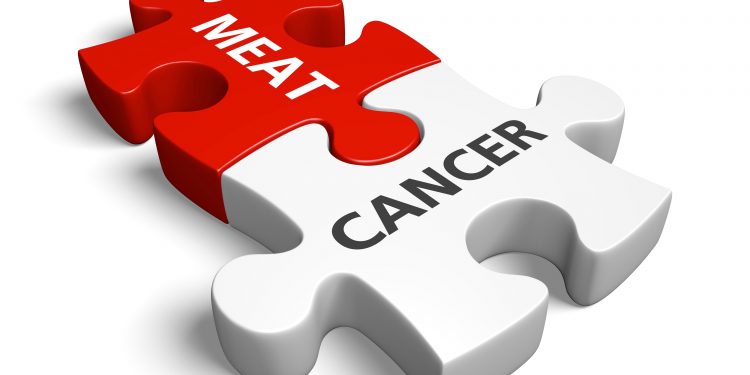Jerusalem: An international team of researchers has identified a direct molecular link between meat and dairy diets and the development of antibodies in the blood that increase the chances of developing cancer.
This connection may explain the high incidence of cancer among those who consume large amounts of dairy products and red meat, similar to the link between high cholesterol and an increased risk of heart disease.
According to the study, published in the journal BMC Medicine, Neu5Gc is a sugar molecule found in the tissues of mammals but not in poultry or fish.
Humans develop antibodies to Neu5Gc in infancy, when they are first exposed to dairy and meat products.
While it is known that these antibodies increase the risk of cancer, especially colorectal cancer, no direct link had been found between the antibodies and meat and dairy consumption.
“We found a significant correlation between high consumption of Neu5Gc from red meat and cheeses and increased development of those antibodies that heighten the risk of cancer,” said study author Vered Padler-Karavani from the Tel Aviv University in Israel.
For the study, the researchers used samples from NutriNet-Sante, an extensive national nutritional survey conducted in France.
The research team members measured the amount of Neu5Gc sugar in a variety of dairy and meat foods common in the French diet and calculated the daily Neu5Gc intake of 19,621 adults aged 18 and over, who reported all of their food intake online over a period of several days.
The research team then took a representative sample of 120 participants and tested the levels of the anti-Neu5Gc antibodies in their blood.
Based on these findings and the quantification of Neu5Gc sugar in various food products from France, the team created an index called the Gcemic index.
This index ranks foods whose excessive consumption can lead to an increase in the antibodies – and possibly to an increase in the risk of cancer.
They found a significant correlation between high consumption of Neu5Gc from red meat and cheeses and increased development of those antibodies that heighten the risk of cancer.
“We were able to find a molecular link thanks to the accuracy of the methods used to measure the antibodies in the blood and the detailed data from the French diet questionnaires,” the study authors noted.






































